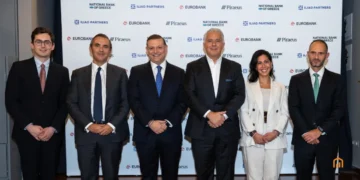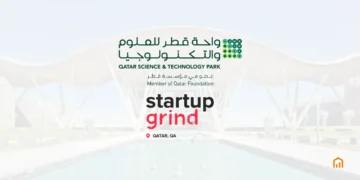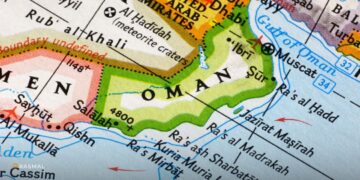An Exclusive Interview With Mohamed Mounir Founder of Paynas and current Deputy CEO at ValU, Egypt.
Mohamed Mounir was able to observe the Egyptian market’s need for new technological mechanisms that allow startups and small and medium-sized businesses to pay salaries to workers and organise employee payments during the years of his career in technology and communications. From this point, he set out to create PayNas, an electronic platform through which human resources can be managed, follow up on attendance and leave, manage vacations, and easily calculate and pay salaries in one place. Rasmal interviewed Mohamed Mounir, the founder of Paynas and current Deputy CEO at ValU, to learn more about how he established and ran his startup before it was acquired by ValU, the most potent fintech company in Egypt.
MENA Startups to Watch
Let’s get to know Mohamed Mounir first?

Since I graduated from the American University’s Department of Computer Science and International Agency, I have been employed in the technology and telecommunications industry for almost 20 years. I have worked on numerous technology and remote communications projects for prestigious companies like Orascom Telecom and Orange Labs in multiple nations, including South Africa, Italy, Saudi Arabia, the United Arab Emirates, and Egypt. After that, I launched my first software development-related startup while working as a partnerships manager at Careem Mobility Solutions.
The Paynas idea started when I identified a market gap regarding the procedures for organising and paying workers’ and employees’ salaries in startups and small and medium-sized businesses; this gave rise to the idea of creating Paynas as an e-platform through which human resources can be managed, followed up attendance and leave, managed vacations, calculated, and paid salaries conveniently in one location.
The reality of developed nations like Germany and America shows that small and medium-sized businesses contribute to their economies, employ a sizable portion of the labor, and significantly advance development. From this perspective, polities focused their initial efforts on supporting startups and their employees because startups are the growth engine for the economies of large countries. In response, Paynas first concentrated on supporting entrepreneurs, startups and their employees.
How did Paynas go from a concept to a startup assisting SMEs?
The most valuable resource in businesses is the employees that run them, and for staff members to work effectively, they need to feel stable. SMEs struggle to give their employees this sense of security. When I started my first software development company, I could not offer the benefits and privileges I could to larger businesses for SMEs because these smaller businesses lacked a credit or financing system that would support them and their employees.
We began to discuss why SMEs are not targeted and included in the credit system with major financial institutions in 2018, including the Central Bank of Egypt, some banks, and Visa. The response was that these small entities lack the capacity to gather credit information that would allow them to be eligible for these benefits. From this perspective, we had to create a platform to assist small businesses in managing their workforces. Despite the novelty of the idea, the Central Bank provided us with great support and assistance as we launched the platform and applied for a licence to conduct financial transfers in 2019. As a result, we became the first Egyptian company to obtain a banking agency licence, which allowed us to issue Paynas bank cards, and our actual work started at the end of 2020 in conjunction with the relaxation of preventive measures for the Covid-19 pandemic.
Do you believe the COVID-19 pandemic has accelerated the spread of fintech tools in Egypt, including Paynas?
Three factors have aided in the recent spread of financial tools. The first was the pandemic that caused the world to come to a standstill and forced us to rely on technological substitutes for daily tasks, accelerating the use of financial technology instead of conventional cash and banking transactions.
It has also significantly aided the government’s strategy to regulate financial and banking technology transactions by adopting and supporting financial institutions, making obtaining licences to use these tools easier, and approving the establishment of businesses engaged in financial technology under Egyptian laws and global changes. More than the issue of rules and regulations, Egypt was experiencing a weak financial network infrastructure that complies with the concept of financial inclusion, where financial inclusion depends on providing users with the ability to use financial cards and applications easily during the usual daily life and online uses. When we examine what has occurred in Egypt over the past five years, we discover that the government has significantly emphasised supporting the financial network’s infrastructure; this has allowed our financial companies to advance and go a long way towards catching up with the march of financial technology and its international developments.
The third factor that aided in accelerating the uptake of financial technology tools in Egypt is the size and potential of the Egyptian market, which we define as being sizable and among the largest in the region. The market is also notable for having a high proportion of young people, which has aided in accelerating the uptake of financial technology due to young people’s increased awareness of and familiarity with technology tools in general.
In your opinion, what are Paynas’s most noteworthy services that made it a target for purchase by ValU, a renowned provider of fintech and financial inclusion solutions, in 2022?
Paynas was the first company to obtain a licence for a banking agency, issue the first card for financial transactions outside of banks, and offer health insurance services to small and medium-sized business employees straightforwardly. Since these SMEs typically employ two or a few people, they are not typically the target for insurance companies, but through us, these startups could get these benefits. The Covid-19 pandemic’s consequences helped highlight the significance of employee health insurance as a kind of job security and stability, and one of our insurance systems’ low starting premiums helped to attract small firms readily.
Additionally, Paynas offered innovative services in human resources management systems, including paying salaries to employees, keeping track of attendance and departure times, vacations, managing insurance costs, computing taxes, and the benefit of receiving payment before its due date. These features have aided startups in giving up the conventional methods of managing their human and financial resources, paying salaries, and managing their expenses in favour of financial technology tools; this has effectively sparked the digital transformation of small and medium-sized businesses.
These factors combined led Paynas to accept the acquisition from ValU and merge the two entities, where Paynas joined ValUs’ range of added services and end-to-end solutions for its retail and corporate customers.
If we approach the topic from the opposite angle, since you are a Deputy CEO at ValU, Why did ValU acquire Paynas?
In addition to what I already said, I think that our system for digitising personal and corporate customer data has been crucial in the success of the acquisition transaction; this is because effective data management and use is an essential component of today’s value-added services industries, given the significance of customer data and information in the fields of credit and finance.
The Paynas team was also a vital point, which contributed to ValU’s expansion and increased productivity efficiency following the implementation of the acquisition and merger between the two organisations, which occurred in an entirely homogeneous fashion.
How did Paynas and ValU merge? And what are the advantages of this acquisition?
EFG Hermes Holding has been one of the largest investors in Paynas since the beginning, so we did not make funding rounds before the acquisition despite all the offers that Paynas received from financial technology companies outside the Egyptian market, which wanted to enter the Egyptian market through us. Still, EFG Hermes came up with the idea of a merger and acquisition by ValU, and this acquisition returned many benefits, most notably that we have become complementary to each other and contributors in providing integrated services, which makes ValU one of the most considerable fintech companies in the entire region with a range of innovative financial solutions.
What difficulties did Paynas encounter the most while establishing?
Our goal was to provide a product at a competitive price while maintaining exemplary standards for our services, which is a challenging equation where we had to consider various factors. The most significant challenges involved the technical aspects and assembling the right team. Attracting talent to the team was also a considerable challenge because there is currently a high demand for talented technology experts in the local market and worldwide. In contrast, these experts work outside the Egyptian market.
Another difficulty for us was educating people about this new technology and earning their trust. To do this, we had to inform and educate people about our services, entice them by meeting their financial needs and making their lives easier, and encourage them to use these services.
What societal impact has Paynas added to its surroundings?
We have always sought to enable financial inclusion for the entire community through the services we offer, which were previously only available to a small group of people. We have been successful in providing a sizable package of services to employees working in restaurants, factories, and small businesses that were not previously available to them, such as health insurance, bank cards to receive salary and other benefits, as well as our human resources management system is a fully automated system, which helps reduce paper consumption and thus reduce logging, and many other sustainable technologies that leave a positive impact on society and the environment in general.
One of the most essential pillars of digital services is the customer experience. Now that you are a ValU service, how Paynas support and enhance its customer experience?
We constantly mention that we market necessities that are a part of people’s daily lives and the market, which represents empowering people with their technological needs. We were and still do business with our customers as real partners, where we record their needs and requests and meet them as effectively as possible. We relied heavily during the first period of the establishment of Paynas on the opinions of And customer requests to improve the quality of services and come up with the best customer experience by working to customise those services in line with the startup. We have also allocated a full team for customer success in order to communicate with them personally to know any difficulty they face in dealing with the system, and solve any obstacle or problem they face immediately.
What are the most significant partnerships achieved by Paynas that meet the needs of customers or the market?
Our partnership with Banque Misr was one of our most significant achievements, especially since we were still in our beginnings. Many believed that the idea of Banque Misr’s partnership with us was challenging to inherit as we are a small and new startup. On the other hand, we talk about the most important Egyptian banks. Still, our deep understanding of the segments and groups targeted by our services, our full awareness of the issue we are addressing, and the way we solve the need helped in successfully agreeing, and started a new phase of activating financial technology tools and achieving financial inclusion, for all individuals of different classes in all governorates of Egypt.
The second partnership was with Visa, who helped us tremendously initially by promoting and adopting our project at a time when we only had a presentation of the goals we wished to pursue. During this time, EFG Hermes collaborated with Visa and ValU, represented by its CEO Walid Hassouna, to promote and bring the idea’s implementation to light. This positive spirit in the ecosystem of financial technology startups has effectively contributed to accelerating the financial technology march in Egypt and attracting investments to this sector.
Tell us about the outcomes of Paynas’ merger with ValU and how the two companies cooperate?
The merger of Paynas with ValU is one of the most successful deals recently completed in Egypt’s financial technology ecosystem. The two companies’ teams smoothly and quickly homogenised in a short paragraph. Even though the backgrounds of the teams are diverse and different, they coincided in a way that enhanced the workflow, which increased the efficiency and productivity of our large group at ValU, where the Paynas team was located and ready to fulfil all of the customers’ financial demands and became one of the essential products offered by ValU, which was reflected in the integration of services with each other. In a short time, we created several significant products that enabled ValU to gain ground in the Egyptian fintech environment. This accomplishment belongs to the ValU big family and its team members.
How do you see the reality of VC investments in the Egyptian fintech sector and its impact on the future?
I see a good and robust attraction to invest in the fintech sector in Egypt; this is evident from the number of investment deals and the volume of funding directed to financial technology companies in Egypt, and the growth of incubators, accelerators, angel investors and other elements of the industry, where we hear about the establishment, support and funding of many startups, which helps accelerate the growth and prosperity of the industry and reflects positively on society, individuals, the economy and the business environment in Egypt. If we say that SMEs are the engine of growth, venture capital firms fuel that locomotive.
As an entrepreneur, former founder of Paynas and Deputy CEO of ValU, what advice would you give to new entrepreneurs?

One of the most crucial elements of a business’s success is assembling a talented team of experts, and a successful entrepreneur’s responsibility is to convey the concept of the startup and the tenets on which it was formed to all his employees to inspire team members.
Entrepreneurship success depends on some factors, including sound financial management, the ability to attract investment, a spirit that accepts criticism with spaciousness, and the capacity to keep up with change; this fosters a positive work environment that encourages efficiency and effectiveness for the success of entrepreneurship.
Follow us on Instagram, LinkedIn, and Twitter for startup & business news and inspiring stories of MENA businesses, entrepreneurs, startups, innovators, investors, and change-makers.
To report any issue or error in the story, please email us editor [at] rasmal [dot] com.
Last Updated on February 13, 2024 by Safiya K
























